The serious side of comedy writing

For aspiring comic authors, there are many technical terms you first need to master. For example, did you know that ‘brontosaurus’ is an anthology of works by 19th century English sister authors? Then there’s grammatical precision. A double negative is a complete no-no. Oh, and get an agent to deal with the financial side of things. Satirists are notoriously hopeless at handling money. We tend to spend half the time worrying about addition, half the time worrying about division and half the time worrying about subtraction.
But for any budding comic author it would be easier if you could be strapped into a publishing simulator to experience the terrors and exhilaration, to see if you have what it takes. Because the list of requirements is gruelling. The honing of cheerfulness to chat show perfection. The haemorrhaging of charisma at book signings. The psychotic episodes which accompany concluding your comic masterpiece after you have stopped finding it funny. (Satires are like sausages – you really don’t want to know what goes into making them. But creating one can sometimes prove as much fun as removing your own IUD with barbecue tongs.) Then there’s the loneliness. I occasionally get so sick of my own company that even my imaginary friend gets bored and runs off to play with someone more interesting. Worst of all is the dreaded book tour which involves flying hundreds of miles from Dipstick, Ohio, to Buffalo Fart, Wyoming, for a one-minute slot on breakfast radio with a member of the ‘Illiterati’ whose reading material is limited to his bank balance and tarot cards.
Then there’s the inane questions at book festivals. (1) Where do you get your ideas? And (2) Would you like to read my manuscript? And (3) What inspired you to write this comic novel? (Answer: The Inland Revenue. I thought I’d laugh my way to the bank.)
On the up side, writing a funny book is so much cheaper than therapy. Otherwise I’d be a permanent member of Couch Canyon. ‘Poetic justice’ is the only justice in the world – and I say that being married to a lawyer. A comic writer can always impale enemies on the end of a pen.
I first realised the wounding power of the pen as a teenager. The Aussie surfie males I grew up with disproved the theory of evolution – they were evolving into apes. These were the type of guys who thought ‘sex drive’ meant doing it in the car.
I decided to exorcise my angst in a novel and shish-kebabed those boys on my Bic biro in a book called “Puberty Blues”. It was published when I was 19 and became a bestseller. It was furious, yes, but also bleakly funny. The success of the novel taught me how much more effective it is to comically kneecap the opposition.
In the 12 novels I’ve written since, I’ve lampooned many subjects. In “Girls Night Out” I set my satirical sights on married men who think monogamy is something you make dining room tables out of. In “The Llama Parlour”, I took aim at Hollywood – a place where they say ‘have a nice day’ and then shoot you. In “Foetal Attraction”, I blew a literary raspberry at natural childbirth – a case of stiff upper labia. In “Mad Cows”, I wanted to barbecue the sacred cow that claims that motherhood is the ultimate fulfilment for a female. Yes, I love my children with a primal passion but, like all mums, am occasionally tempted to shove them back into the condom vending machine for a refund.
“Altar Ego” was the antidote to Bridget Jones, because I don’t believe a woman should wait around to be rescued by a Knight in Shining Armani. It seems to me that a perfect marriage is like an orgasm – many of them are faked.
“Nip’n’tuck” was a feisty attack on the facial prejudice older women endure and the cosmetic cowboys who want to disfigure us. (My mother told me never to pick my nose – especially from a catalogue!) I then penned “Dead Sexy” – a satire on the sex war. (Why do men like intelligent women? Because opposites attract.) “How To Kill Your Husband – and other handy household hints” was a cry for help for the generation of women who thought we were going to Have It All, but just ended up Doing It All. Even though women make up 50% of the workforce, we’re still doing 99% of all the housework and childcare. The Dunkirk evacuation would have been easier to organise than a working mum getting her kids up and out of the house in the morning. Men may say they’d like to help more around the house, only they can’t multi-task. This is just a biological cop out. Would any man have trouble multi-tasking at say, an orgy? (Men, take note, it is scientifically proven that no woman ever shot her husband while he was doing the vacuuming.)
“To Love, Honour and Betray” poses the theory that teenagers are God’s punishment for having sex in the first place. Living with a teenage daughter is a lot like I imagine living with the Taliban would be. A mum is not allowed to laugh, dance, sing or wear short skirts. My top tip for mums of teens who say, ‘I wish you’d just die,’ is to take a big drag on a cigarette and a big gulp of wine and say, ‘I’m doing my best darling’.
“The Boy Who Fell To Earth” tells the poignant tale of a single mother raising a child on the autistic spectrum. This novel was inspired by my own lovely boy who has Aspergers. But the book is a celebration of eccentricities and idiosyncrasies and, I hope, laugh out loud in places as my own son has me in hysterics, regularly. Both crying and laughing.
So, as you can see, I have a lot to get off my Wonderbra-ed chest. So, why use humour? Because if you can disarm with charm, you’re more likely to get your message across. The author and critic Amanda Craig puts it more eloquently: ‘Critics refuse to accept that literature can be profound, but also pleasurable; an experience which lifts the spirits while engaging the mind.’ A thought backed up by no less than Dr Johnson, who observed, ‘The true end of literature is to enable the reader better to enjoy life or better to endure it’.
Scientists tell us that laughter is innate; it originates in the oldest part of the brain, the hypothalamus. Biologists maintain that laughter increases our biological fitness. Anthropologists have revealed that the Eskimos hold laughing competitions and that women, in all cultures, laugh more often than men, especially in all-female groups. Why? Well, living with the male of the species, we have so much to laugh about. Firstly, there’s the fact that hypochondria is Greek for man. (If any man says he’s not a hypochondriac, well, that’s the only disease he doesn’t have.) Then there’s the fact that many marriages break up for religious reasons – he thinks he’s a God and well, she just doesn’t. Not to forget the fact that women are still getting concussion from hitting our heads on the glass ceiling – and we’re expected to clean it whilst we’re up there. The female of the species is also the butt of God’s biological joke, beginning with periods (when a girl gets taken hostage by her hormones) followed by pregnancy and childbirth (which requires you to stretch your birth canal the customary five kilometres) – then ending with the menopause. Then just when everything goes quiet, what happens? You grow a beard. Is that fair I ask you? Yes, for the female of the species it’s probably a case of laugh or … your mascara runs.
Men always say that women can’t tell jokes. Of course, this might be because we marry them. But perhaps one of the reasons men don’t want to admit that women are funny is because they’re terrified to think what we’re being funny about. Boys, to put you at your ease, let me just say that on our all-girl gatherings, we don’t just talk about the length of your appendages…. We also talk about the width, which, after childbirth is much, much more important.
So, as you can see, basically I just write down the way women talk when there are no men around. But the trouble with writing humorously is that it’s so subjective. What one person finds funny, another finds fatuous, which can lead to some reviewer Rottweilering. And when it comes to criticism, if there were an Olympic Games for Hypocrisy, comic writers would win Gold. A glowing review, and we’re sycophantic with praise – ‘Critics! So perspicacious! Such literary taste and discernment!’ Feelings explode in you like champagne. I once had a glowing review printed on a t-shirt and wore it for weeks. Hell, I had to be restrained from getting it tattooed onto my forehead. But when we get a bad review critics become no better than pond scum. ‘Critics! Ugh! Cyborgs that eat human flesh are less alien than book reviewers!’
There’s no need for a printed t-shirt now as you’re running away to Goa to live naked in a hollowed-out tree with Lord Lucan . You begin to understand that there is a very fine line between book reviewing and homicide. Thoughts of murder cross your mind. The only thing which stops you is the hideously unflattering prison uniform. Although, you find yourself thinking, after a drink or two, at least the stripes are vertical, which would be vaguely slimming.…
When you bump into a critic who has savaged your work, a few responses occur to you simultaneously: (1) Why can’t you see her lobotomy scar? (2) How the hell does she fit her cloven hooves into those Prada shoes? But I suggest you simply shake his or her hand then say something like: ‘It’s really courageous of you to risk coming into contact with me after the diagnosis’.
That said, all writers need some constructive criticism – especially if you’re writing comedy. How do you know if it’s funny? My very scientific and high-tech test is to make an observation at the dinner table. If my female friends laugh, I write it down. But, it’s pointless being precious about your material. I learnt this when writing for a sitcom for Columbia Pictures in Hollywood. Lines, jokes and whole scenes were rejected on a daily basis. All those hugely successful television sitcoms such as Seinfeld, Frasier and Friends, etc are all actually written by about ten people. They lock you in a windowless room, which I used to call the ‘gag gulag’, where you make jokes all day. It’s like being a stand-up comedian, except you’re sitting down. The hilarious writing staff I worked with were all Jewish. I became so Jewish when I worked there – big hair, high shoes, talking with my hands – that I feel guilty that I’m not. But that hothouse atmosphere taught me that there is always a better and funnier line.
The best thing about being a comic writer is that people expect you to be immature and disorganised. This means you get to work in your PJs all day, drink heavily on the job and have affairs and call it research. But I principally became a satirist as it involves no heavy lifting. Except for those writers who lift whole sections of other people’s work and then call it their own. But hey, you can’t have all work and no plagiarism, right?
But if you really want to be a comic writer, your most important assignment is to think of a witty epithet. Spike Milligan’s was: ‘I told you I was sick.’ I think mine will be: ‘Finally – a good plot.’
Photograph: Antonio Zazueta Olmos for the Observer
My books
Read at your own risqué
What do women really want in bed? Breakfast. Oh, and a good book. If you’re looking for a funny, frivolous yet feisty new read, do slip between my covers. Satisfaction guaranteed.
Making headlines
Believe nearly everything you read...
What I'm up to
A window into my world...
Here’s a selection of scribblings in which I peel down to my emotional underwear – a psychological striptease that occasionally reveals all.
One-liners, wise cracks and witticisms
I think women are each other’s human Wonderbras – uplifting, supportive and making each other look bigger and better.
If he wants breakfast, tell him to sleep in the kitchen.
Men think monogamy is something you make dining tables out of.
Many marriages break up for religious reasons – he thinks he’s a god and she doesn’t.
Love prepares you for marriage the way needlepoint prepares you for round-the-world solo yachting.
Boys will be boys, and so will a load of middle-aged boys who should know better.
Ladies who lynch.
No wife ever shot a husband while he was vacuuming.
I think therefore I’m divorced.
All husbands think they’re Gods. If only their wives weren’t atheists.
Happy wife = happy life.
I couldn’t ask for a better husband… as much as I’d bloody well like to.
Statistically, 100% of divorces begin with marriage.
Marriage is nature’s way of promoting masturbation.
Marriage is a fun-packed, frivolous activity – only occasionally resulting in death.
It’ll be an amicable split. You’ll both get 50 % of the acrimony.
A new invention is required. The monogamous husband. Patent Pending.
How Do I Hate Thee? Let me Count the Ways.
My wedding vows didn’t say To Love, Hoover and Obey.
I’m Having my period so can therefore legally kill you.
You are going to enjoy this marriage, even if I have to divorce you to do so.
A happy marriage is like an orgasm – many of them are faked.
All this emphasis on women faking orgasms, but what about men faking foreplay?
Why do men like intelligent women? Because opposites attract.
Why don’t women tell jokes? Because we marry them.
What does a woman really want in bed? Breakfast.
For women, life is full of lies – I mean doctors maintain that wrinkles don’t hurt.
Legal aid cuts prove that the Tories believe a person is innocent until proven destitute.
Sexist men are so stupid it makes you want to take the ‘men’ out of Mensa.
If a man ever tells you that women fall at his feet – it’s only because he gets them drunk first.
A woman must always fight back. Never just lie back and think of Canberra.
The best cure for menopause is the toy boy diet. A case of having Your Beefcake and Eating It Too.
I don’t fake orgasms. I’m faking being six foot one and seven stone.
Trophy wives tarnish quickly and then get left on the shelf.
Lawyers work 24/7. The partners of lawyers suffer from a bad case of subpoena envy.
Most shrinks should book an appointment with themselves.
The question on the minds of most women is – why doesn’t chocolate go straight to your boobs?
Don’t fall for a man’s puppy dog look… Just get him wormed.
It’s been so long since a man has touched me, not even medical science will want my body.
My top tip for keeping your youth? Lock him in the pool house.
I told myself that it took forty-two facial muscles to frown and only four to stretch out my arm and bitch-slap the witch.

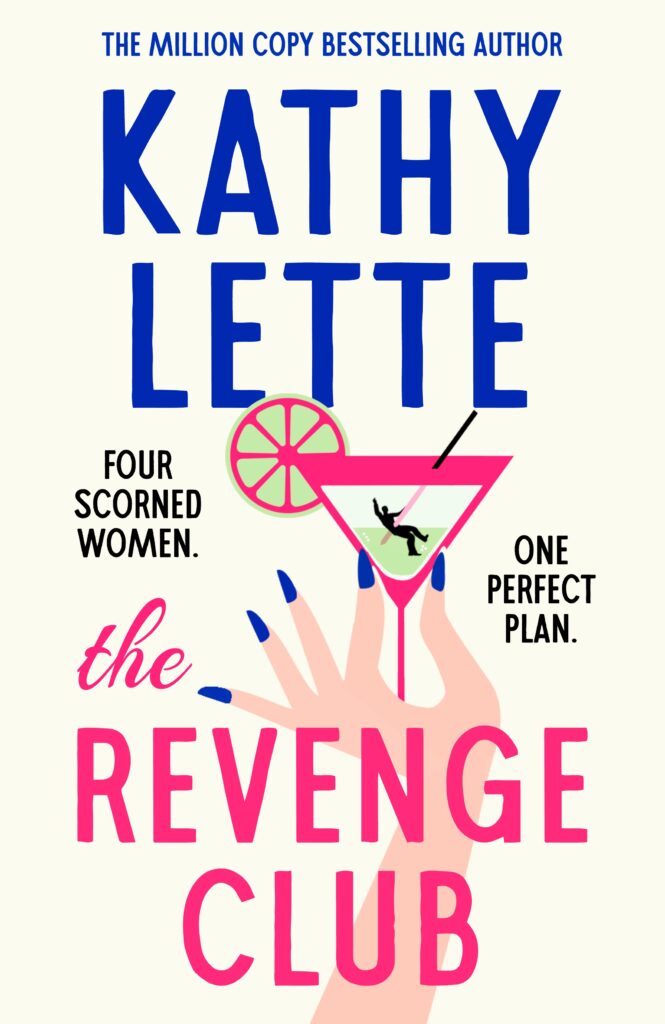
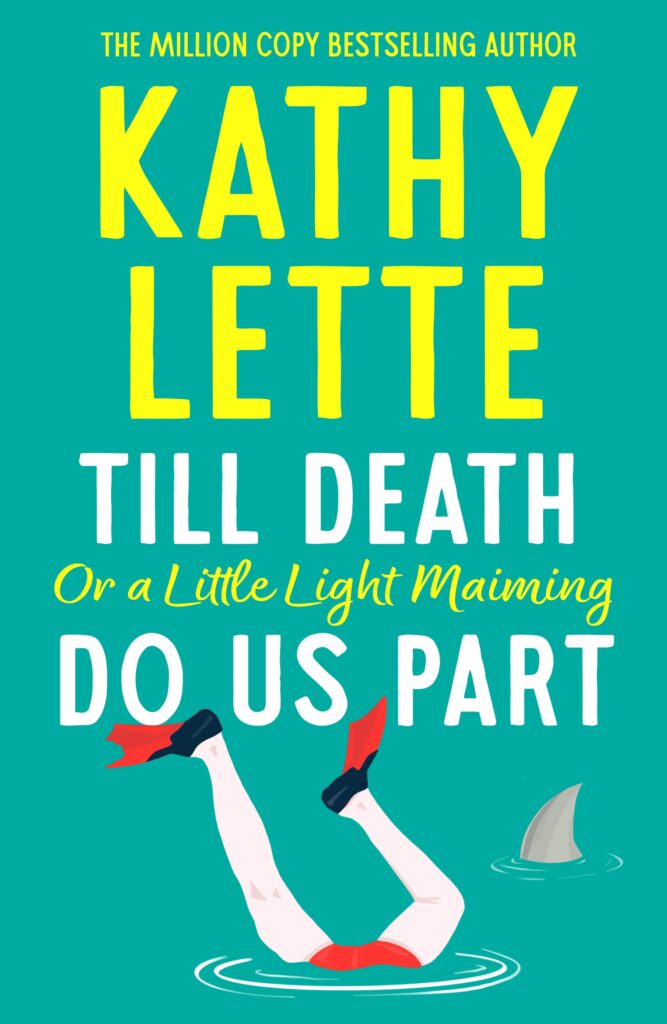
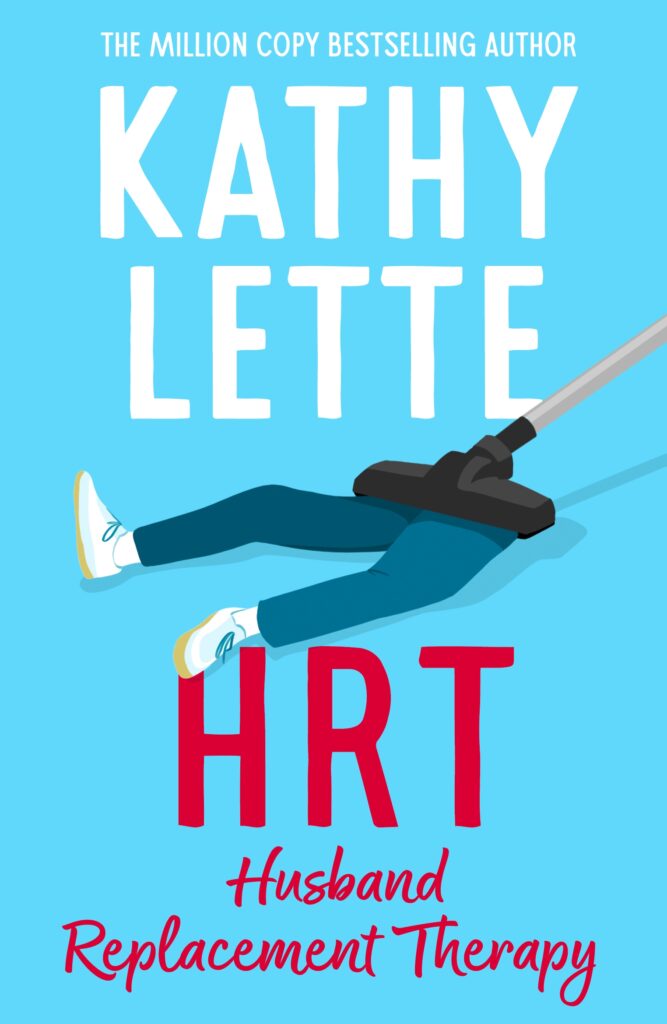
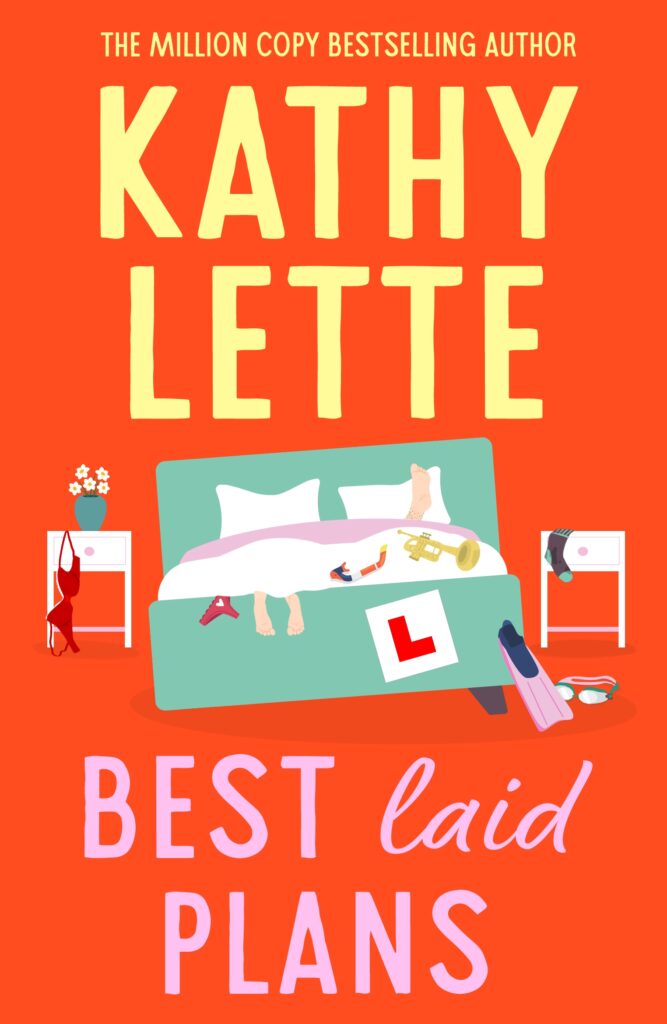
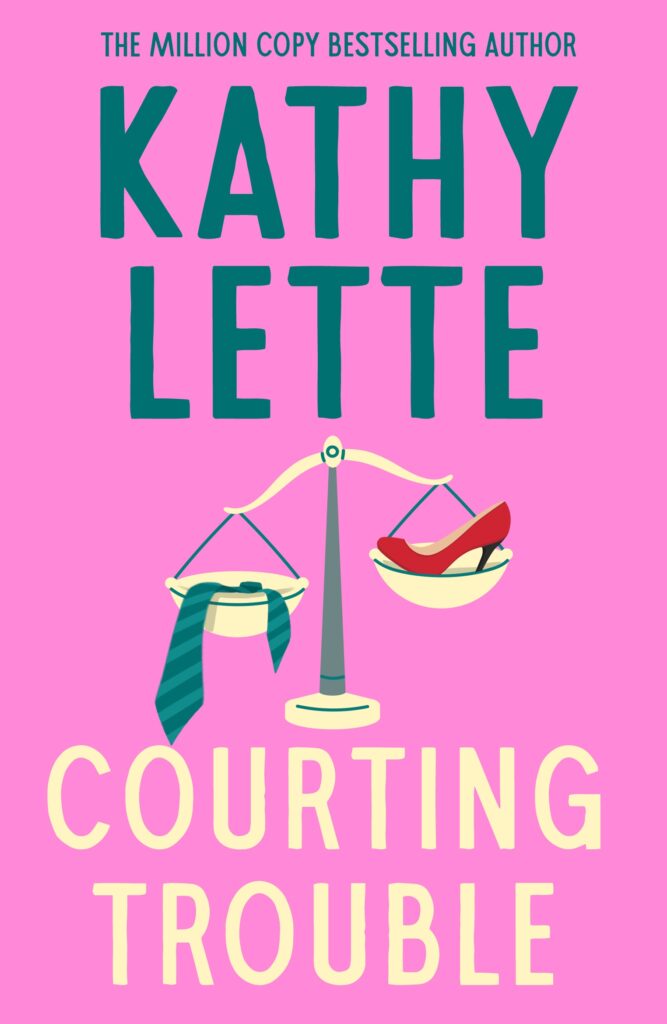
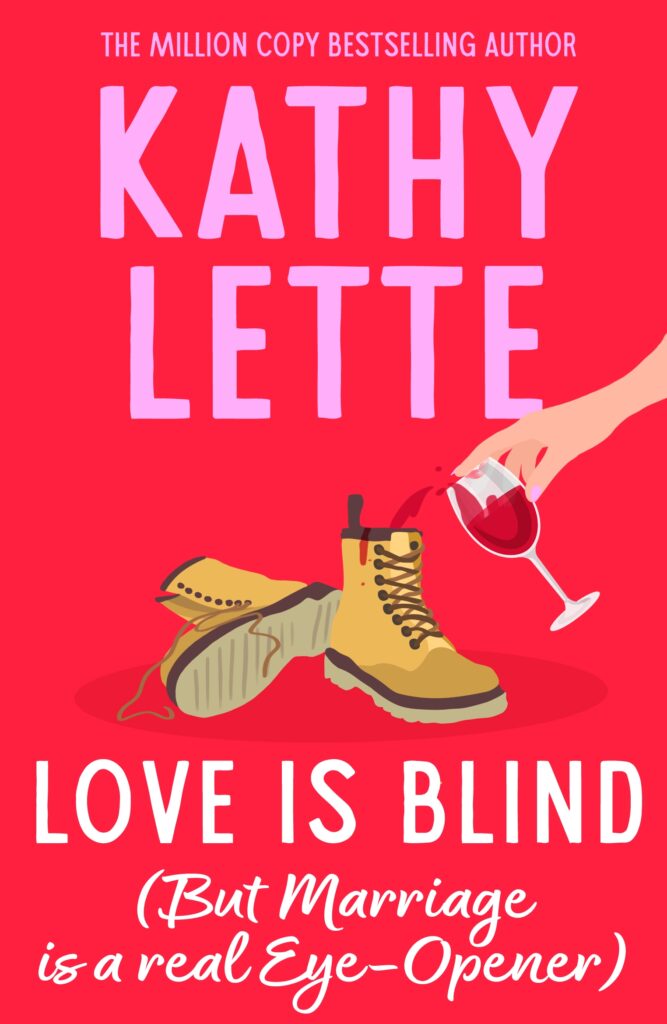
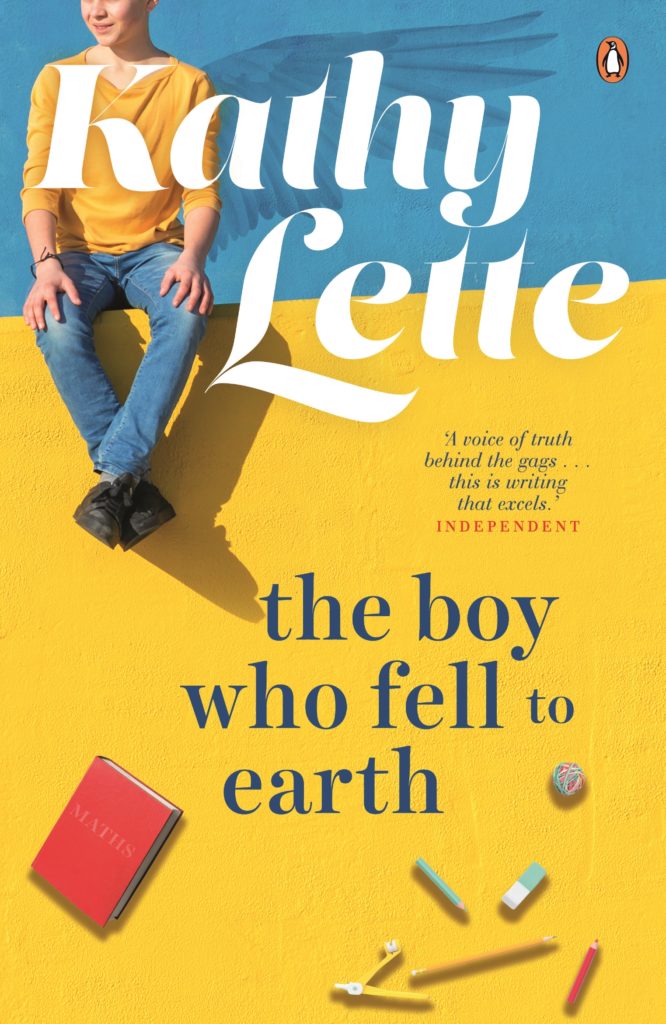
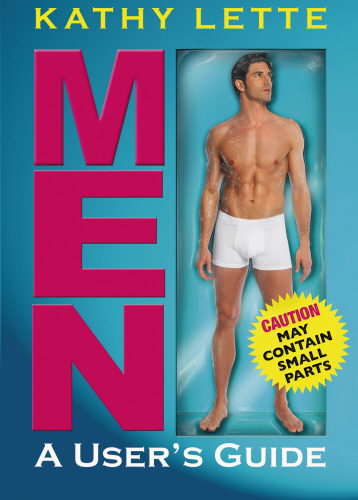
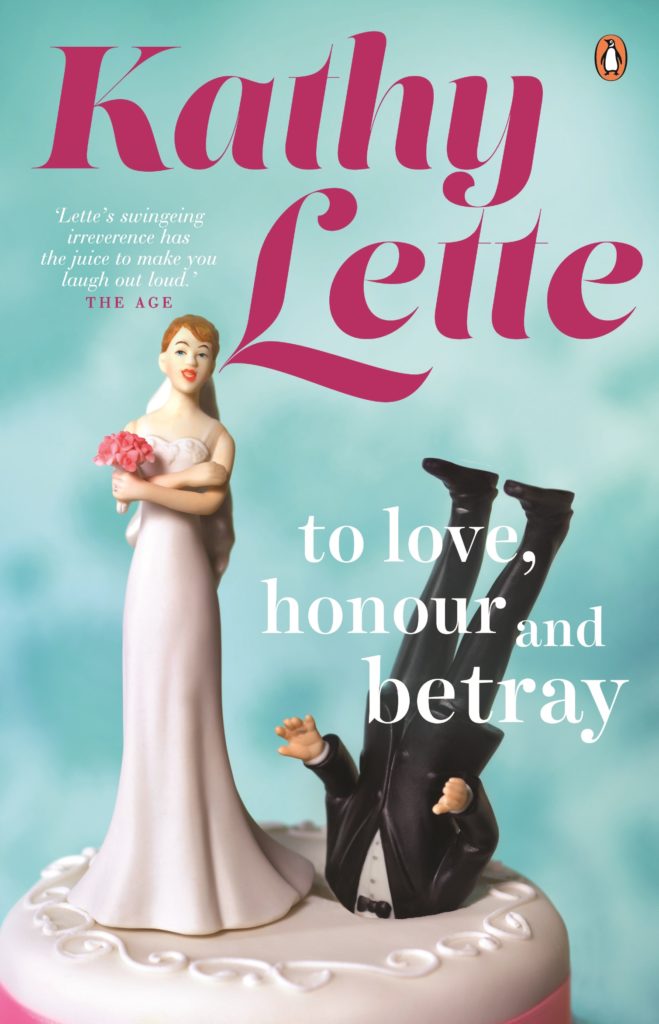
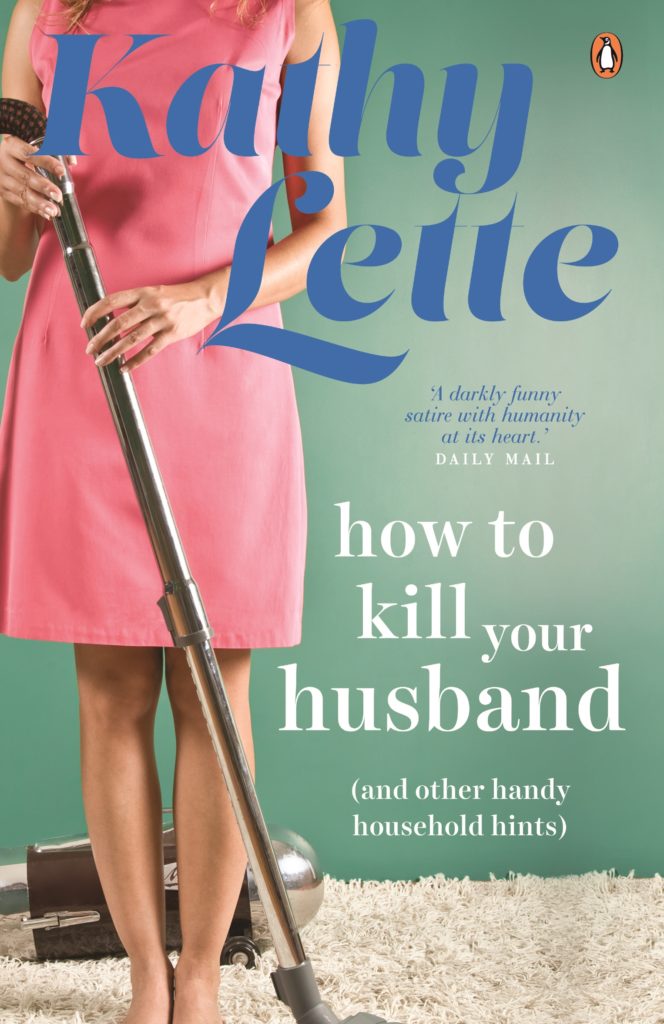
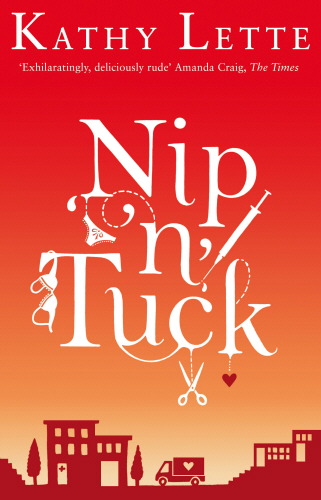
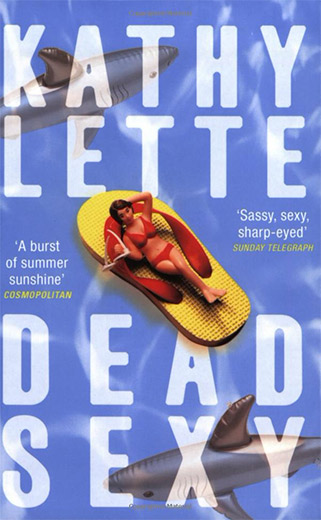
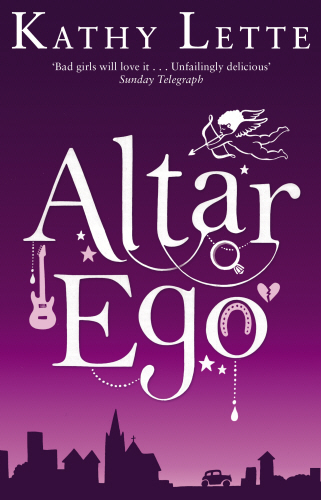
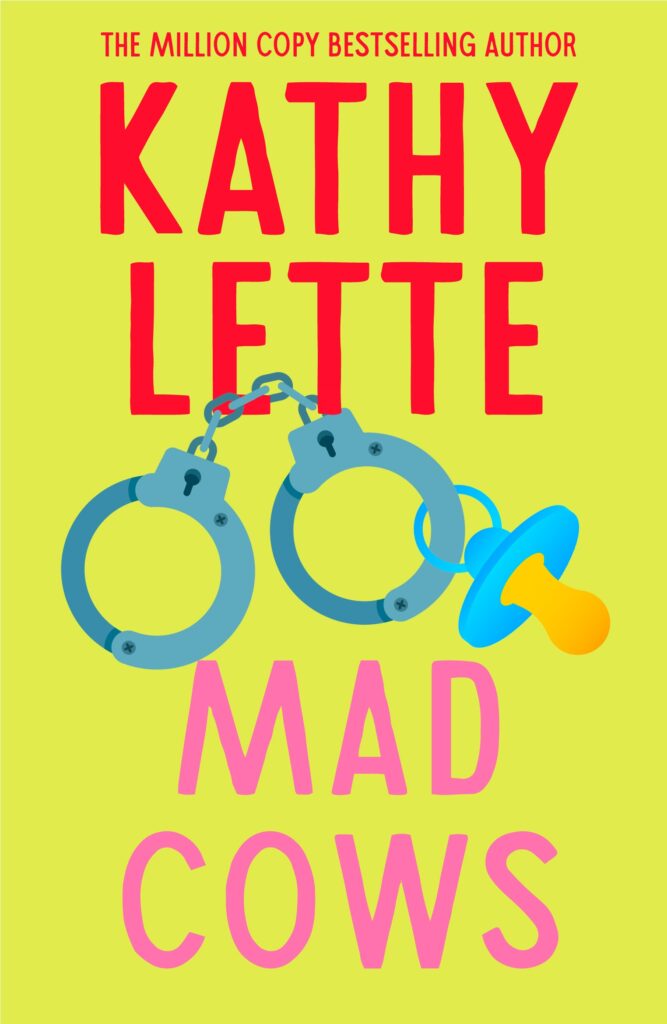
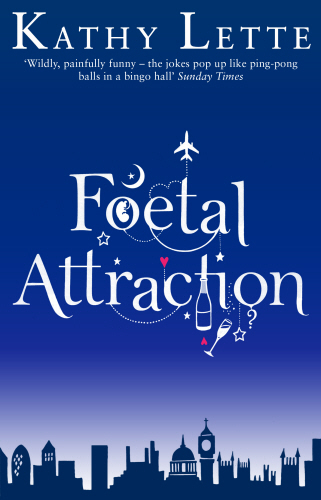
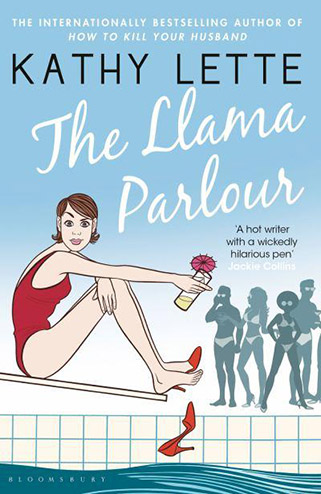
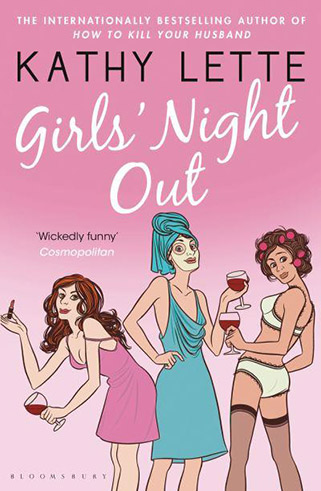
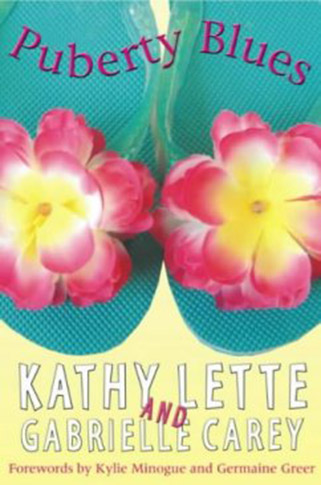
4 Comments
Hi,
I am a big fan of Kathy and her work, keep up the good work! I have a question, which I am sure you hear all the time.
I truly believe that I have a winning ‘novel’ idea, however there is one big problem, I am not a confident writer! I have dabbled with writing a few things over the years, including comedy sketches, and my personality and sense of humor are definitely similar to that of Kathy’s! I certainly have a few funny stories and embarrassing incidents which would make great material for a ‘Kathy Style Book’.
I am sure Kathy gets asked to read manuscripts, however I don’t have one, just a great story idea which would relate to most women, and even some men and I believe Kathy would be the only author to write such a story.
I am 99.9% confident that the idea, concept, title and content would be a bestseller and I no longer wish to continue my life with regrets for not trying things, so here I am aged 39, and finally trying to do something with my ideas. I would fall off of my stilettos if I had a positive reply from you regarding how I could possibly get Kathy to at least just hear my story idea…of course without her pinching it!
Forever hopeful
Kirstie
Hi Kathy,
I would just like to tell you what an inspiration you have been to me in the past year. Yes, it’s true – I have to admit to only discovered you a year ago after reading an article similar to this one in my bible – The Writer’s & Artists Handbook. Well, it was my bible until the new pup I got to keep the first pup I got company while I tried to write ate it, but that’s a whole other story…
I have read and enjoyed The Boy Who Fell to Earth and Alter Ego so far and found them to be both brilliant and hilarious. Yes, humour is subjective – particularly to those who like to take themselves too seriously. But we all know the rest of us are having all the fun and I have found your work to be right up my humour street. And while I am awaiting my fate in submissions just now with my own work, you may not know how much you lifted my spirits one day, after a got no less that five rejections in one go from my agent, by telling me on Twitter how many you had for Puberty Blues. I was pretty fed up, to say the least, and you made me laugh and offered me hope to keep going. I said the consensus was my humour is too crude. But after finding myself in tears of laughter at shared links via Twitter and your Facebook page, about vagina cakes among other wonderful things, I live in hope that my crudeness may one day pay the rent. Or, I’ll be sectioned and it won’t matter anymore ;-D
I do think comedy writing takes more guts to share than anything else. You know it’s going to fall in the love it or hate it category with reviewers; you’re so right. One editor called my writing, ‘Marmite’. Hey, I LOVE Marmite.
I laughed when I read about the angst you go through when you stop find yourself funny. I’m still going back to rewrite and I know this place. It’s good to hear this is normal. But I’ll get there. I write because I love it and because I have to. No one is going to be able to stop me now – rejections or not, whether it ever pays or not, the ‘this book tries to be too funny’ reviews, I’ve come to that place in my life where I can’t stop. It’s called ‘sh*t, I’m forty-two and I need to make a mark that has nothing to do with stress incontinence.’ 🙂
Anyhoo, I wanted to find a way to tell you thank you and this is where my search led me. SO thank you. From one comedy writer to another – you totally rock and I’m so glad I found you in those now chewed up pages for the Writers Handbook, which incidentally has no pictures of writers hands in it. Weird…
Thank you for being so lovely and offering this advice to new comedy writers and just for, well, taking the time really. I have been overwhelmed by the generosity of great, published writers in sharing their experiences for those of us trying to get there. It’s a great thing that you do.
Your new(ish) fan
@hell4heather
Please could you tell me the order to read kathy lett books in
Hi Kathy,
I have a 12 year old son with Aspergers who from aged two had severe eating difficulties and I came up with a plan to expand his diet. Then spurred on by your enthusiasm I have just written a book about it called; ‘What to Feed an Asperger? How to go from three foods to three hundred with love, patience and a little sleight of hand’ to be published by JKP in December. Would you read it and review it please?
Thanks ever so much, Sarah Patten